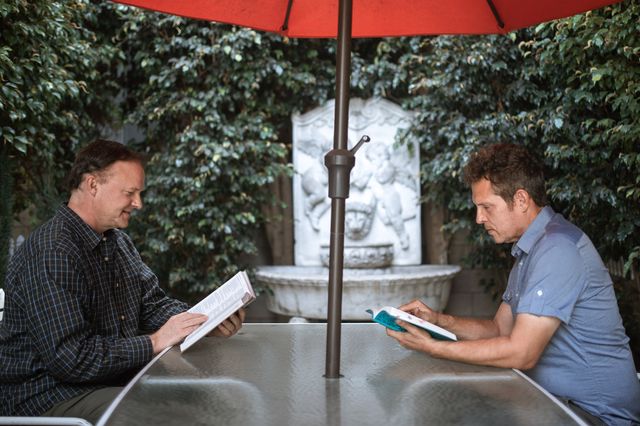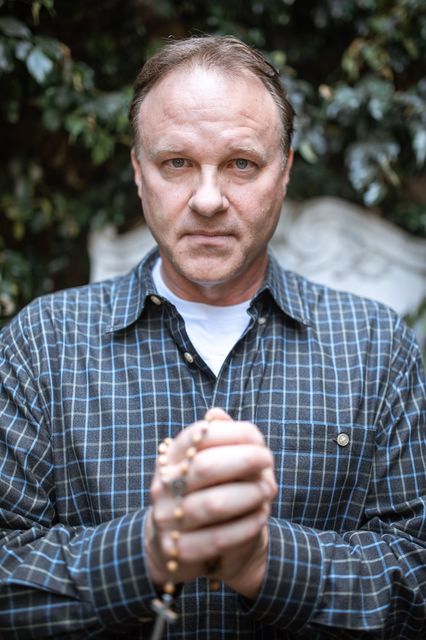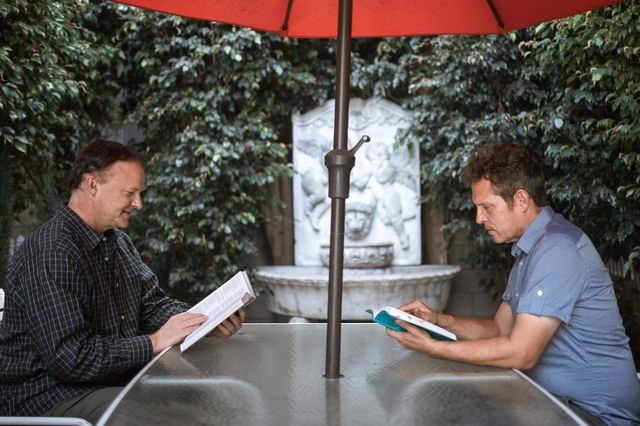
There are many who read the stories of scriptures like they are reading fables. I do not mean these stories are seen as fanciful or untrue. It is about how we read the stories and the meaning we seek from them. Think about a fable. How does every fable end? With a moral. Every time you read the fable, you always get the same moral.
It can be that way with the stories of scripture. You read the story. You get the meaning, the lesson, the truth, that you are supposed to apply or express our lives. Once you have this lesson or truth, well, the story can lose its importance. You don’t read novels or plays that way. Instead, you immerse yourself in the story, and by living in the story, there is a truth about yourself and about the world that emerges. It is not a lesson to apply to your life; it a sense of meaning that becomes a part of you.
And yet, when we turn our attention to scripture, there is not immersion; there is only mining for the nugget of truth it offers.
What follows are reflections on the story of Joseph that come from living with the story. The story of Joseph is found in Genesis 37-50; these reflections focused on what happens in Genesis 45: 1-15.

The story of Joseph offers us a very different picture of the presence of God, the movement of God in our lives and in the world. Prior to the Joseph story, the work of God has been forthright and direct, with displays of awesome power. God tells Noah to build a boat and load up the animals and Noah does it. God opens up the heavens and rains falls for forty days. God closes up the heavens and the rain stops. God tells Abraham to offer his son as a human sacrifice, and he proceeds to do so until God miraculously intervenes.
God combines the forces of nature with the authoritative word of Moses to inflict the plagues on Egypt and bring the Pharaoh to his knees. God piles up the waters of the sea so the Hebrew people can pass through and then brings the waters crashing down on the Egyptian army.
Prior to Joseph, God is a miraculous, intervening God whose work and power are undeniable. The only real choice people have is to participate in or to resist God’s power and presence and the work of God’s hand.
The narrative of Joseph is very different. The events of the story unfold page after page. We witness the pride of Joseph, the intense hatred of his brothers, the passive inaction of Jacob. All of these dynamics collide in stories of intrigue and deception, each person choosing how they will act toward the other.
And through it all, the name of God is not mentioned. God speaks to no one. God does not raise his hand to bring about any kind of miraculous intervention. The story continues until we reach this moment of encounter between Joseph and his brothers. This moment where his brothers do not recognize Joseph but Joseph most certainly recognizes them.
And yet, while the place of God in this story is different, and perhaps discomforting, to be sure, God is there.
Not in the foreground, performing grand and glorious acts or bringing the story to its inevitable conclusion…but God is there. Not speaking directly to the characters or making the reconciliation between Joseph and his brothers come to pass the way it should, but still God is there.
God is there, but mysteriously in the background, as these human interactions occur and the twists and turns of fate and chance unfold. In the end, Joseph realizes the hand of God that has been at work in some hidden way and played a role in the reconciliation with his brothers. And yet, we never forget that in this story there has always been the possibility that Joseph wouldn’t get it, and the story could go in a completely, different direction.

But Joseph does get it, and yet, he still has to act. He still has a choice to make. He still has to face his brothers and decide what he is going to do about his relationship with them. Joseph realizes that God, in subtle ways, has brought him to this place in his life. And that is an important realization. It makes this a crucial moment, a moment with promise, to know that God has been at work in all this, even if only now Joseph sees it. But still Joseph must decide if reconciliation will happen, and if it does, what it will look like.
There is this remarkable moment in the text where the brothers do not recognize him, but Joseph recognizes them. He physically recognizes them, of course. But he also remembers. He remembers all that has happened to him at the hands of his brothers. But Joseph also remembers his own attitudes and actions that contributed in some way to how they treated him.
And so, here is a moment for change and transformation to happen…because of that subtle, behind-the-scene, presence of God. Joseph sees clearly the reality of who the other is, and he decides what he wants to do, how he wants to respond. For in this encounter with the real other, he encounters the realness, the honest truth about himself. And that honest self-truth always contains a mixture of light and darkness.
Here in this story, we see an example of what genuine reconciliation is about.
To be sure, reaching this place is not easy. In fact, you might say that reaching this place is impossible, at least in human terms. Reaching this place takes something beyond ourselves. It takes the presence of a God that is working in subtle and mysterious ways, but a presence of God that is never silenced. And it is this presence that gives us a new perspective, a perspective that finds a way to see myself and the other as child of God.
Reconciliation does not happen as an act of sheer will, where we muster enough courage to push through the hurt and offer some words of forgiveness and reconnection. Genuine reconciliation comes from recognizing and embracing the common humanity that I share with the ones who have wounded me. We reach a place where, at the same time, we see them as someone who has hurt us and as someone who is also a child of God.
And then this transformed perspective yields a transformed stance and transformed action. Reconciliation happens. I do it. Like Joseph, I make it happen. But I do so from this transformed place. I am not reconciled merely with a person who has hurt me and offended me. I am reconciled, I am always reconciled with a child of God who has hurt me and offended me.
And so we give thanks for this almost hidden, but very real God whose presence brings about genuine healing and reconciliation.
